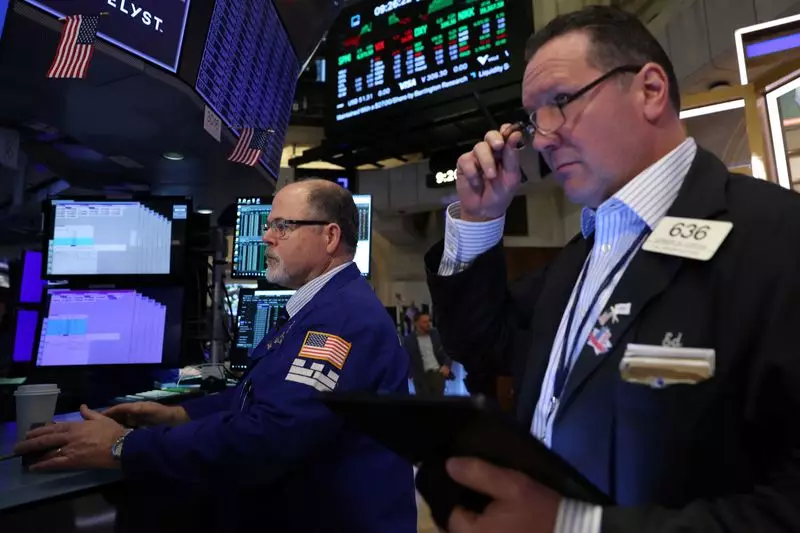At the onset of the new year, Wall Street’s major indices have found themselves in a precarious position as investors tread cautiously amidst economic uncertainty and impending policy changes from the soon-to-be-instated Trump administration. As trading began, positive signals emerged, with the Dow E-minis gaining 140 points, or approximately 0.33%, while the S&P 500 E-minis and Nasdaq 100 E-minis also reported similar upticks. Yet, this optimism stands in stark contrast to the four consecutive sessions of decline that characterized the preceding week. Strikingly, this downward trend diverges from historical patterns in which markets typically experience gains during the end-of-year rally.
Analyzing the Decline
The first week of trading in January has not unfolded as anticipated, particularly for the benchmark S&P 500 and the Dow, which are both forecasting declines exceeding 1%. The technology sector, a driving force behind previous market rallies, has been notably hammered, echoing investors’ apprehensions regarding potential shifts in fiscal policy. Speculation about the repercussions of Trump’s proposed economic strategies—including corporate tax cuts and deregulation—has introduced a layer of complexity and tension within the investment community. With a Republican-controlled Congress set to kick off its first session, focus intensifies on how the forthcoming policies may affect market performance.
Market analysts suggest a shift in investor mentality since Trump’s electoral victory, originally perceived as a bullish indicator. Peter Andersen, a veteran market strategist, emphasizes that while the initial wave of optimism surrounded market-friendly changes, the primary concern has now shifted towards inflationary risks and the Federal Reserve’s potential reactionary measures. Investors are now betting on a 50 basis point cut in interest rates for the year, suggesting a dramatic pivot in monetary policy might be on the table. This conjecture indicates a landscape where rapid shifts in policy could either fuel or stymie market growth.
As investors prepare for a day of significant economic data releases, including the ISM report on December’s manufacturing activity and anticipated employment figures, the focus remains on assessing their implications for future market behavior. Richmond Fed President Thomas Barkin’s insights are also expected to provide clarity on monetary policy trajectories. Despite current concerns about stretched equity valuations, analysts from brokerage firms maintain a positive outlook, anticipating another year of profitability for stocks, supported by robust corporate earnings.
Sector-Specific Movements and Market Reactions
Within the premarket window, particular sectors experienced notable volatility. Alcohol companies, such as Constellation Brands and Molson Coors, witnessed declines exceeding 1% following new recommendations from the U.S. Surgeon General advocating for cancer warnings on alcoholic beverages. Conversely, some individual stocks, like Block, enjoyed a boost, fueled by a positive rating upgrade from a prominent brokerage firm. The fluctuations serve as a reminder of how sensitive the market can be to regulatory changes and public health announcements.
Wall Street enters the new year with a blend of cautious optimism and anxiety. Investors remain acutely aware of the dual-edged sword presented by Trump’s administration, balancing the potential for economic invigorating policies against the looming threats of inflation and interest rate adjustments. As the week unfolds, keen attention to economic indicators and Federal Reserve commentary will be crucial in shaping market sentiment and guiding investment strategies. In this climate of uncertainty, adaptability will be key for investors hoping to navigate the myriad challenges on the horizon.

